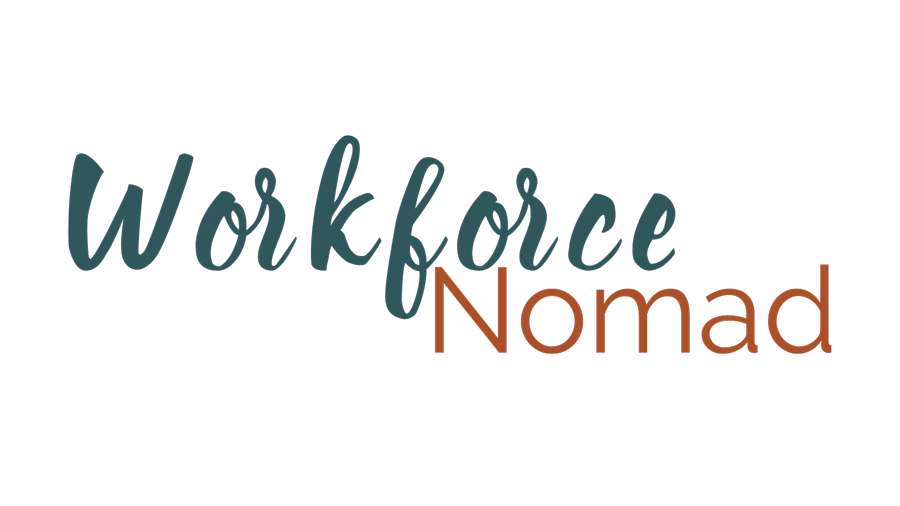
by Kathy | Feb 16, 2015 | Uncategorized
If you are leading an organization and find yourself thinking “I am adaptive because I have to be to deal with how quickly things are changing in my world every day.” Odds are you aren’t being adaptive, you are being reactive and that is having an impact on your business.
To be an adaptive leader you need to focus on 5 areas; Engage and Inspire, Vision Clarity, Trust and Empowerment, and Managing Alignment. Those sound obvious, right? But lets examine what these really mean.
Engage and Inspire– This is called “showing up and giving a shit.” When I think of the times at work when I’ve been inspired by my colleagues, it always contains an element of this. There is nothing like some one else’s infectious passion to move me to action. Start with being engaged yourself and then get really good at sharing it with others. Share it every day. If you aren’t very good at sharing this make that your number one priority.
Vision/Purpose Clarity – This isn’t just making a mission statement or signing a manifesto, this is about living it, making decisions that aren’t counter to your vision, and being purposeful about when the vision shifts (as it will). Your colleagues are watching what you do to see if it matches what you say. If you are having trouble making decisions you might have to spend some time on getting clear yourself, in which case be honest about that and do the work to get clear. Then behave in a way that will get you there. If you behave in a way that is counter, ask yourself why and be able to explain it. If you do it too often you’ve got to question your vision/purpose, maybe its in need of some refining.
Trust and Empowerment – This is not the same thing as handing out responsibility. Responsibility without the authority to make decisions and take action is useless. Responsibility and authority with an unclear purpose is downright dangerous. If you haven’t tackled the clear vision/purpose this will fail. You also may have to extend your vision for the company into clear purpose for the people filling roles. Do this work with them so it resonates. And people will feel empowered to execute. Then trust. This means you have to take a few risks because if your people make mistakes you are going to have to help fix them. This doesn’t mean you shouldn’t ask good questions and help keep your people from running off a cliff.
Managing Alignment – That brings us nicely to alignment. If you give someone a purpose they don’t “get it” or it seems misaligned with the greater purpose or contradictory to another persons purpose in the organization….here comes trouble. This means making sure everyone is on the same page and not impinging others ability to get stuff done. Help everyone with understanding everyone’s purpose and how they support each other and how it drives the greater vision.
Many companies spend money and time coming up with a nice mission statement so they can point to it and say, “that’s our vision/purpose.” But they skip every step afterward that helps draw the lines between what their people do every day to get the organization “there.” No wonder they appear to be going nowhere at a really high speed.

by Kathy | Feb 16, 2015 | Uncategorized
I gave myself a learning vacation. There were no other co-workers at these sessions, all new people from new companies coming from a variety of contexts.
Getting a chance to think on an entirely new idea created some space in my brain. Of course, it filled it up as well and I need to start practicing GTD (Getting Things Done) so I can regularly make space.
But back to the created space, my week was spent studying the practice of Holacracy, an alternative approach to organizational structure and operation. It is generally spoken of as compared (contrasted with) to a typical hierarchical structure, which is seen in most organizations. As I thought about it in the context of my company (ThoughtWorks) the comparison is a little different. While in a traditional structure power and authority is pretty clearly delineated at ThoughtWorks it is not. So in many ways implementing Holacracy would be implementing structure or at least explicit structure, which is something most of my colleagues would balk at due to an aversion to hierarchy and rules that seem box one in. But I think that aversion is not about structure but rather the pathology that comes with certain structures.
By pathology I mean those behaviors that one must enact in order to get things done that out of context might seem, well, pathological. (The politics and manipulation of the system for example or the elitist mentality, you’re either in or you are out).
What I liked about Holacracy is that as a system it doesn’t support that kind of behavior as a means to getting things done. In fact is shines a light on it and forces it out of the room.
The best thing my week did for me was give me a lens from which to think of my current situation and examine what behaviors are created by our environment which I have taken for granted. And to see if there is a way to bring some of the healthy behaviors into play and create a grass roots movement of change.

by Kathy | Jan 23, 2015 | Innovation, Leadership, Uncategorized
Smart brains, big ideas, small ideas, different agendas, different goals, politics real and imagined, put them all together and what do you get? A five headed dog. Now, try taking that for a walk.
Have you ever walked a five-headed dog? Each head wants to do a different thing, sniff this, eat that, catch a Frisbee, chase a postman… Walking that dog would feel nearly impossible. But this is what it can feel like when you are trying to integrate the thoughts, ideas, opinions and feelings of many people in a room.
I recently had the experience of walking that dog (as I regularly do) and had to remind myself what is important about leading such a beast. Show up, be present, no attachment to outcome. In this case I didn’t have a lasting stake in what the team was doing, so I was present strictly for leadership, facilitation and maybe some advice. I had to remember that the people in the room were responsible for creation of an outcome and they may not have actually agreed on what that outcome should be. Getting really clear on everyone’s goals and hidden agendas was important. “Sure Kathy, goals I can see a way to figure out, but wouldn’t hidden agenda’s by their nature, um, be hidden?” Well, yes, and you need to pay attention to what folks are saying, not saying, what their body language is doing when they are not saying anything and you’ll never really be sure what someone else is thinking by the look on their face. You need to ask probing questions and make a space where every type of person can contribute, introvert extrovert, other vert. You don’t need to figure out the hidden agenda’s just make space for them to come out or disappear.
In order to keep your energy up, remember to breathe. Be reasonable with breaks, time is limited and that’s a good thing. Don’t try to attribute like or dislike to a person based on what they appear to be thinking. You’ll make yourself crazy. Listen and be firm when taking things in a new direction, address fear with a kind calm stance and a lot of compassion (and save a little compassion for yourself). Then enjoy the ride. Because even difficult things can be fun.

by Kathy | Jan 28, 2013 | Uncategorized
I had a great conversation today with Cyndi Mitchell in which we were talking about career, planning, not planning, breakthroughs, etc. And I was left with a phrase in my mind “apply fear to your career.”
I am a bit of a thrill seeker in my personal life. Not extremely so, I have no desire to sky dive for example, but I love to challenge myself to do new things. Jazz singing lessons that culminate in performances in a club that challenge my stage fright, aerial acrobatics lessons where I perform high above the crowd challenging my fear of heights, learning to conquer my fear of ocean swimming by learning to surf. These are challenges I can come up with easily for myself I pick a fear, set a goal and do it. I can think them up with ease and make it happen. These activities also make me feel alive and I think they make me grow into a different and better person. For some reason it is harder to create these experiences at work and take these risks. I got to have one such experience with work recently being asked (with a weeks notice) to give a Ted talk. I almost actually turned the experience down. My thought process went something like this. “What, a talk? In a week? Video to be put on YouTube no less, what do I have to say that matters? Why should anyone want to hear from me?” All of these voices came up and I gave myself permission to not do it. But then I felt sad imagining not doing it. I already saw it would be a missed opportunity. I knew I would regret it and wonder, what if I hadn’t let my fear prevent me. So I bit the bullet and said yes. I’m so glad I did. I’m proud of what I did (though of course would like to improve it) and I think it made me better, different. Now how about I create a plan to do something like this more intentionally. What if I dream about something I’m a little afraid of doing and then try to make that happen. That talk fell in my lap which is great, but what if I apply my fears to create a new challenge for myself at work? What will I do?

by Kathy | Jan 19, 2013 | Uncategorized


Had my first trip to Kenya this week. I took only a couple of pictures I’m afraid. It was all business. We met so many people and now I’m staring at this pile of cards feeling a little daunted by all the emails I have to send, good thing I took notes! I suppose this is also why I’m doing a blog after a ridiculous lull, to avoid my real work. Ah well, at least I can update my family and friends. Kenya is a much larger city than Kampala and has some better infrastructure going and some that is just like Kampala. The most interesting bit was that they are preparing for elections in March. Which means a lot of discussions about politics, though I think most of that happened outside of the city. The elections to many of the business people we met seemed more like a nuisance than anything. Something to get through so you can resume normal business and in that sense it felt like the states. There has been some violence in some counties and rigging and fraud accusations were everywhere. While I think the two party system leaves a lot to be desired having many parties also leads to a lot of unhappy people. In the end the only majority that will be reached is the majority of people who didn’t get what they wanted. It was very interesting to witness groups of men (and they were all men) standing on corners listening and discussing politics. Apparently this is not something that just happens during elections but all the time. But it was the first I’d seen something like it and the first my colleague (who is from Uganda) had too.
by Kathy | Dec 23, 2012 | Uncategorized
I can’t remember the last time I only used cash in my day to day life. While I always paid my balances at the end of the month I’ve relied on the ease of plastic to track everything and to not think too much about money except in retrospect. As long as I ended up spending around what I thought I would it was okay, but I think I ended up spending more than I certainly needed to spend. But here in Kampala Amex doesn’t work and even my visa didn’t run through the one time I tried it so its strictly cash for me. And its really an interesting experience. I’m trying to track it in a spreadsheet because the funny thing about cash is how it slips through your hands. But it also runs out and you can see it happening so its kind of a fun way to manage a budget. And maybe in some ways its easier. At least from a perspective of not going over, but not so much from a tracking perspective. If I don’t write it down I’ll never know what I need to adjust. It feels a bit obsessive but its also become a form of entertainment. Whats really interesting is it extends to most everything here. Prepaid phone, prepaid DSTV (which I haven’t bothered to get yet) and even the gas for the stove is prepaid (as in you buy a tank and refill when it runs out). I was cooking tonight and wondering will it get finished before I run out of gas? I have phone calls home and think, will my minutes run out mid sentence if I’m not careful? Its good and makes sense if you are tight on funds because you can’t get into debt. You just have to do without, but it is a different feeling to your day. So for now I’m going totally cash and prepaid. And maybe when I return I’ll keep it up. Though, I do like those miles…..












